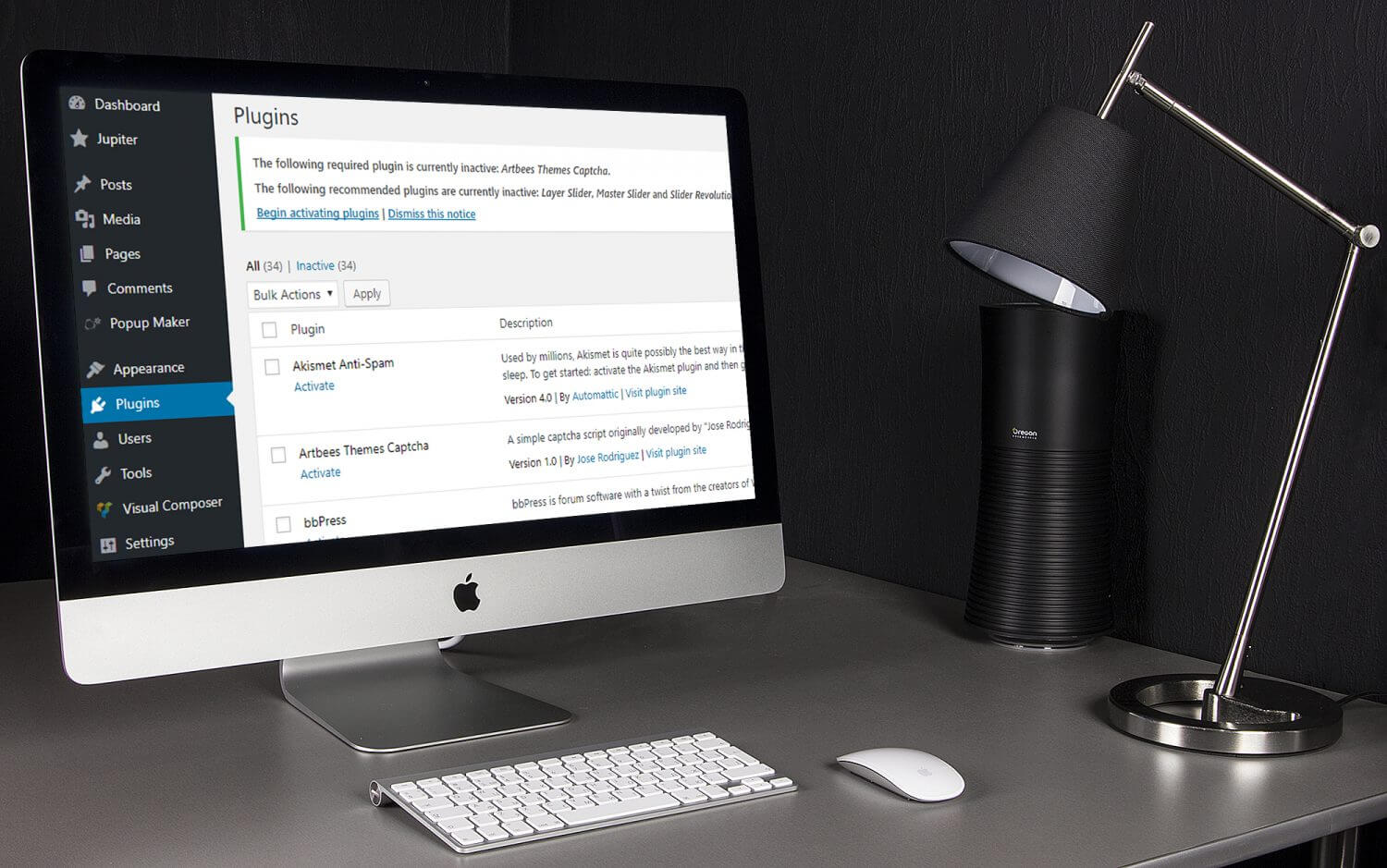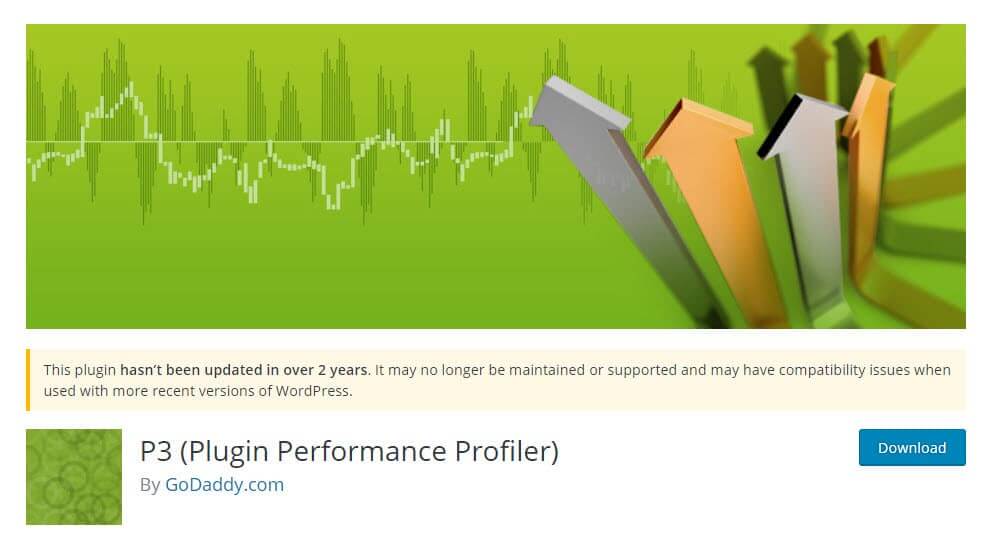At Artbees, we can confirm that a majority of users run their websites on WordPress. One big reason for this is the massive library of plugins available through WordPress. There are many plugins to choose from, each allowing the customization of websites to the exact liking of the designer. Gone are the days when developers had limited design options. By choosing a theme and then building upon it with plugins, the possibilities are endless.
But is it good to use a large amount of plugins on a website?
In theory, yes, but going over the top and having too many plugins can be harmful and can cause significant damage to a website. In some cases, incompatible plugins may conflict with one another causing some elements of your website to stop working. We can all agree that having a broken website isn’t a good look for anybody.
We’re here to help you avoid the embarrassment. Let’s look at a list of harmful effects caused by a overusing plugins in WordPress. As you’ll see, the effects span to almost every area of web development.
Overusing WordPress Plugins: Why more isn’t necessarily better
Memory and Site Load Speed
When anyone chooses to visit your website – or any website for that matter – an enormous amount of code is executed in order to deliver the page to the visitor’s browser. The code for each of your plugins also runs at this time. When you pile on the plugins, the time will inevitably add up. This can result in a slower site loading time, which will require you to increase your memory on the server.
In the fast-paced lives we all live these days, customers don’t have the time or patience to wait for a website to load. After about 10 seconds your visitor will likely leave your website if it hasn’t loaded fully. To avoid this hazard, it’s better to have a limited number of plugins.
File System and Database
Each plugin individually takes up some space in your file system, and many plugins make use of the WordPress database to store configuration information and other data. Plugin files don’t usually occupy too much space, but if you use a limited or low budget hosting service this might mean you will fill your allocated space up sooner. If the space runs out, you’ll be forced to cut down anyway – so better to avoid overcrowding your file systems and database and be selective with your plugins from the get-go.
Managing too many WP plugins at once
Generally, plugins are easy to manage; even users with no programming knowledge can operate them. However, you may face some issues when updating plugins because some are not as easy and simplified as others. A plugin update can contain bugs in the code, which can potentially break your website. The risk increases every time you add a plugin. When you have fewer plugins, there will be fewer updates and a lower risk of conflicts, code bugs or site crashes.
Conflicting WordPress Plugins
If you haven’t experienced this issue this year, you should consider yourself lucky. Plugin conflicts are very common in websites. In fact, some programmers even purposely develop plugins in such a way that they’ll be incompatible with other plugins. A conflict between plugins can also happen if two different plugins use the same generic variable names.
There are coding standards that govern plugin development, however, not all developers follow them. Long story short, if you decrease the number of plugins on your site, you’ll reduce the probability of encountering such conflicts.
Security
There is always a higher risk of security issues occurring when a new plugin is installed. If a plugin is new in the WordPress repository, you should take considerable caution in using it. Because it hasn’t had the time to be tested or reviewed adequately, you won’t know if it has the security needed to protect your site in case someone tries to hack it.
It’s better to go for plugins that have been tested by many people and that have been out for a while. Before installing a plugin, check the feedback of it, and check if it’s compatible with your website. Remember: the more plugins you have and the less frequently you update them, the more chances you have of getting hacked – which would be a major nightmare!
What should you know before installing a new WP plugin?
1. Determine the need of a plugin.
Do you really need the additional functionality this plugin offers? You should decide if this plugin is absolutely necessary to include on your website. If not, avoid activating it. Perhaps you can find plugins that combine features that you’re looking to add.
2. Get it from a trusted source.
When you install a plugin, you’re taking a risk each time. To minimize your risk as much as possible, you should use plugins only from companies, or developers, you can trust. Do your research, or sift through our blog archives to find the plugins we recommend for various functions.
3. Test for conflicts.
Before you do anything, you should make sure to read a plugin’s documentation. Test your site performance before and after installing the plugin. Installation may affect your search engine rankings or your visitor experience.
If you want to see which plugins on your site are having the biggest impact on performance, try installing and running the P3 Performance Profiler plugin. Yes! Ironically it’s another plugin to add, but this one is worth it – it’s reliable and can be removed after you’ve gathered all the desired information.
[call_to_action title=”Discover 26,000+ code scripts & plugins from our partner CodeCanyon starting from $2″ target=”_blank” url=”https://1.envato.market/c/1239055/275988/4415?subId1=plugin-related-docs-posts&u=https%3A%2F%2Fcodecanyon.net%2F” type=”link”]
So, choose your plugins carefully. Don’t keep plugins on your site if they aren’t absolutely necessary or if they aren’t leaving you satisfied with the results on your website. Don’t just deactivate them; remove them altogether. It might seem excessive, but we promise you’ll thank us. And soon, your website visitors will be thanking you!
REVIEW:
Harmful effects caused by plugins overload:
Memory and Site Load Speed – the loading time might slow down and detract visitors.
File System and Database – you might use up all the file space on your hosting service.
Management – the chance of code bugs and conflicts will increase with more plugins.
Conflicting Plugins – when two plugins are incompatible, neither will work.
Security – with every additional plugin, especially new plugins, there is an increased risk of security issues.
What should you know before installing a new plugin?
- Determine the need of a plugin.
- Get it from a trusted source.
- Test for conflicts.






No comment yet, add your voice below!